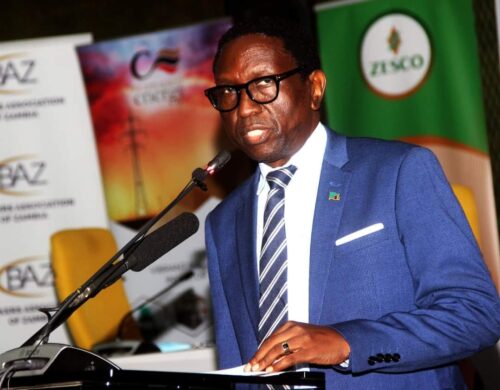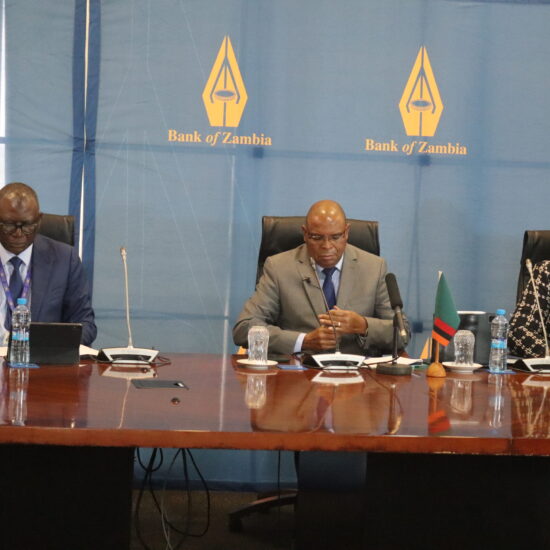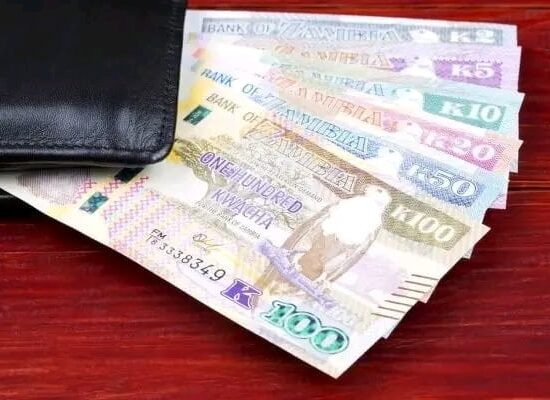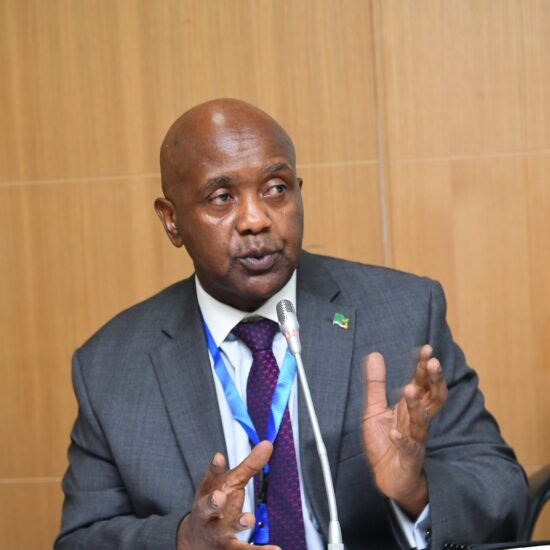
The Bank of Zambia – BOZ Governor Chris Mvunga has stated that the central bank is working on finding a lasting solution the Kwacha, which has in the last few weeks shed value.
Mvunga who replaced Denny Kalyalya stated during the presentation of the monetary committee (MPC), that the committee at its November 16-17, 2020, meeting, decided to maintain the monetary policy rate at 8% to moderate risks to financial stability and growth.
He stated that the decision to hold the rate at 8% also allows monetary policy measure taken earlier in the year to take full effect. This is despite projections indicating that inflation will persist above the 6-8% target range throughout the forecast horizon.
Mvunga said that the economic global activity is showing signs of recovery as economies partially reopen and policy stimulus measures begin to take effect. He said that, in less contraction of 4.4% is projected in 2020 than earlier projection of 4.95%.
He explained that, a strong rebound in global growth is projected in 2021, supported largely by policy stimulus measures. Mvunga said that, the recovery is still expected to be protracted and highly uncertain over the medium-term due to the impact of income losses on aggregate demand, rising sovereign debt and subdued commodity prices.
The Governor explained that the risks to global growth remain tilted to the downside due to high degree of uncertainty surrounding the evolution of the pandemic as well as the speed of delivering a vaccine.
He disclosed that, after rising steadily for six successive months’ quarters, annual overall inflation decelerated to an average of 15.7% in the third quarter from 16.1% in the preceding quarter. Mvunga said that this was due to improved supply of maize grain and related products and that on account of food, inflation declined to 15.2% from 16.9%.
However, he said that non-food inflation rose to 16.2% from 15.1% largely due to depreciation of the kwacha. He also added that, the recent readings of inflation points to a resurgence in inflationary pressure and that in October, inflation rose to 16% from15.7% in September largely reflecting the weakening of the kwacha.
Mvunga explained that the kwacha depreciation against other major trading partner country currencies, albeit at a slower pace mainly on account of increased foreign exchange market interventions by Bank of Zambia. He added that, against the US dollar, the kwacha weakened by 3.3% to an average of K18.94 per US$ in the third quarter and closed the quarter at K20.02 per 1US$.
Furthermore, he said that, currently, subdued foreign exchange supply amidst increased demand has continued to underlie the market. He added that, the reduction in the supply of foreign exchange market is partly due to a slowdown in global economic activity, which has adversely affected capital flows. Mvunga heightened demand for foreign exchange is mainly for the importation of agriculture inputs and petroleum products.
Mvunga said that with the increased net foreign exchange sales for market support coupled with debt service, gross international reserves declined by US$111.8 million to US$1,321.2 million (equivalent to 2.3 million of import cover) at End-September form US$, 433.0 million at End-June (equivalent to 2.3 months). He explained that despite the decline, on the level of reserves, the month cover unchanged due to the drop in imports of goods and services attributed to the subdued economic activity and the depreciation of the kwacha.
He disclosed that, it is noted that imbalances in the economy remain and that inflationary pressures have persisted, growth is anaemic and fragilities in the financial sector have abated. He added that due to what’s on ground, the MPC considered three options which are: raising, reducing or maintaining the policy rate. Mvunga said that with the inflation on the rise, conventionally, raising the policy rate in an effort to control inflation would have been expected.
However, Mvunga explained that, doing so, in an already depressed economic situation, would result in further contraction in economic activity and threaten the stability of the financial sector and on the other hand, reducing the policy rate in an attempt to give further support to the economy may put additional pressure on the exchange rate in a supply-constrained environment.
He disclosed that considering all the factors, including the significant reduction in the policy rate by 350 basis points in 2020, and allow monetary policy measures to take full effect, the MPC decided to maintain the policy rate unchanged at 8.05.
Mvunga said that, the policy will be guided by inflation forecasts, outcomes, and identified risks, including those associated with financial stability and the COVID-19 pandemic.









